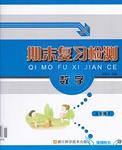题目内容
15.Most people who travel from China to the US find that,even though they have studied English for years,they have to"re-learn"it upon arriving.Words that we learned in English classes are not pronounced the same way here.To truly be part of the"melting pot(大熔炉)",speaking English fluently(流利地)is not enough.You need an accent to stand out.
When I first came to the US for graduate school,I was a nervous foreigner.I felt so out of place that I wanted to hide everything about me that was"different".To talk like an American became one of my most important tasks.So I tried to copy the way native speakers talk and,over time,I made good progress.
Soon my American friends started to praise my English as having"almost no accent".At a conference in Washington DC,someone even said:"You speak with a Midwestern accent."
I took this as a sign of my success.People usually thought I was from California."Why California?"I would ask.They would reply:"Well,you certainly don't look American,but you don't talk like a Chinese person,so you are most likely from California.Most Asian Americans are from there."
Suddenly,conformity(一致) was no longer a compliment.(赞美) If I talk like an American,am I still Chinese?If I lose my Chinese accent,do I also lose my cultural identity(身份)?
Now I realize that a person's accent is a lasting record of their past cultural experience.An accent is often taken to mean that you haven't learned about a culture,when,in fact,it is a mark of one's experience of different cultures.
As a fourth-year student in the US,I am no longer a nervous foreigner.My nervousness has been replaced by strongly wanting to hold on to my cultural origins(出身).Now I always speak with a bit of a Chinese"accent".I do not wish to speak"perfect"English because I am proud of who I am.
66.Why does the author think people have to"re-learn"English upon arriving?(No more than 15words)
She thinks they need to learn an American accent.
67.How did the author feel when others praised her English?( No more than 5words)
She was proud of herself./She felt she was successful.
68.What is the author's most important job when she first came to the US?( No more than 10words)
To talk like an American was her most important job.
69.Why did the author decide to speak with a bit of a Chinese"accent"?( No more than 10words)
She wanted to keep some of her Chinese identity.
70.What is the article mainly about?( No more than 15words)
The author's changing attitude toward her Chinese accent..
分析 本文主要讲述作者对汉语语音态度的转变.
解答 66.She thinks they need to learn an American accent.
67.She was proud of herself./She felt she was successful.
68.To talk like an American was her most important job.
69.She wanted to keep some of her Chinese identity.
70.The author's changing attitude toward her Chinese accent.
66.She thinks they need to learn an American accent.细节题. 根据文章二 段Words that we learned in English classes are not pronounced the same way here. 可知作者认为重新学英语的原因是我们学的与美国的语音不一样.
67.She was proud of herself./She felt she was successful.细节题. 根据文章第 五段I took this as a sign of my success. 可知我把他们对我的赞扬看成是我的成功.
68.To talk like an American was her most important job.细节题. 根据文章第三 段To talk like an American became one of my most important tasks.可知我最重要的工资就是像美国人一样聊天.
69.She wanted to keep some of her Chinese identity.细节题. 根据文章倒数第三 段If I lose my Chinese accent,do I also lose my cultural identity(身份)?可知作者留着一些中国的口音的目的是想保留自己的身份.
70.The author's changing attitude toward her Chinese accent.主旨大意题. 通读全文可知本文主要讲述作者对汉语语音态度的转变.
点评 做阅读表达题时,理清文章的脉络、掌握文章的主旨大意,并能运用简洁的语言表达.回答要有针对性观点要明确.不要摘抄文章原句.

 期末复习检测系列答案
期末复习检测系列答案 超能学典单元期中期末专题冲刺100分系列答案
超能学典单元期中期末专题冲刺100分系列答案 黄冈360度定制密卷系列答案
黄冈360度定制密卷系列答案 阳光考场单元测试卷系列答案
阳光考场单元测试卷系列答案| A. | how is he getting along | B. | that he is getting along well | ||
| C. | what he is getting along | D. | if he is getting along well |
| 现象 | 1.根据最近调查,约25%的大学生打零工 2.在暑假,这一数字将增至72% 3.大学生常做的零活有:家教、服务员、售货员等 |
| 原因 | 4.想赚钱支付部分日益增长的学费 5.想经济上独立,买一些自己想买的东西 |
| 意义 | (内容由考生自己拟定) |
1.词数:不少于60.文章的开头已为你写好.
2.参考词汇:
调查survey;家庭教师tutor;学费tuition;经济地economically;
According to a recent survey.….
| A. | broke up | B. | broke away | C. | broke down | D. | broke in |
| A. | on top of | B. | in case of | C. | in terms of | D. | regardless of |
| A. | pick up | B. | turn up | C. | break up | D. | build up |
| A. | wen toff | B. | burst into | C. | got up | D. | broke out |
| A. | .in particular | B. | .in harmony | C. | .in doubt | D. | in brief |